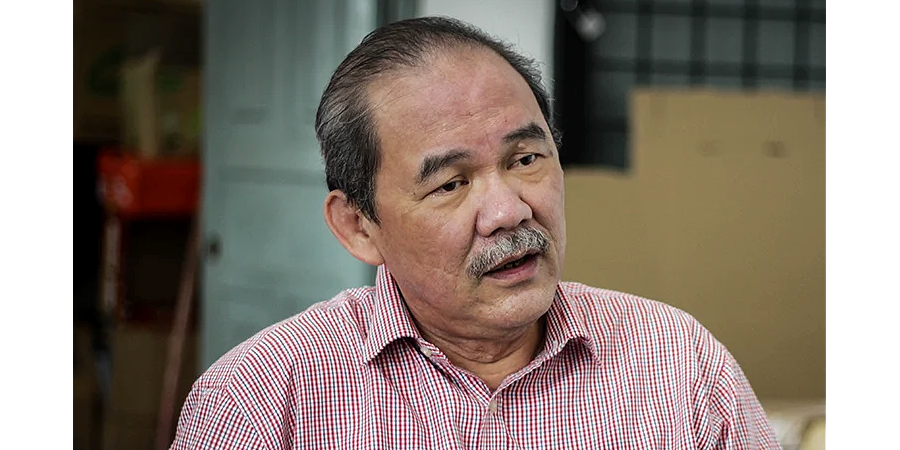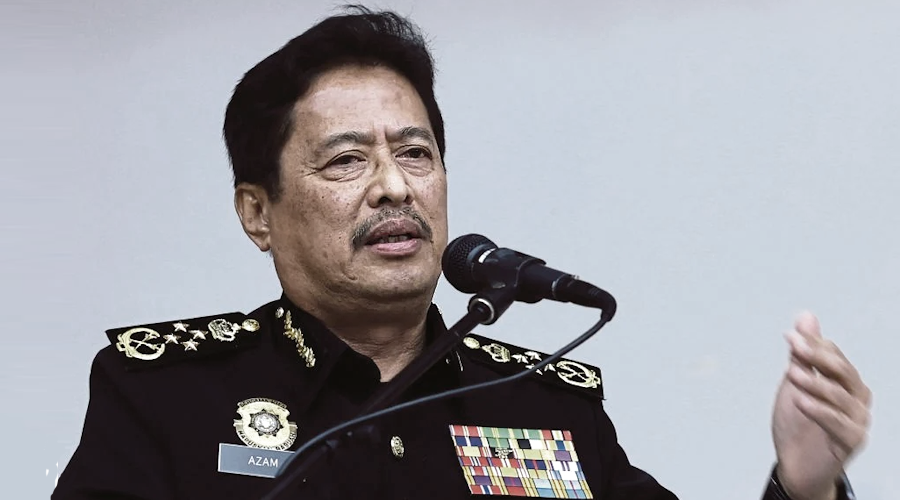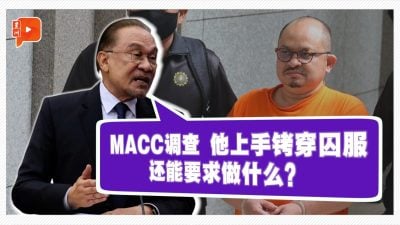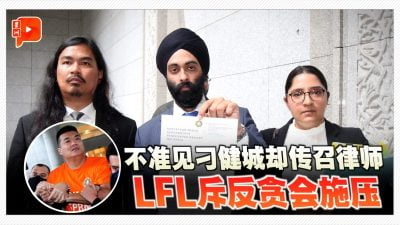
There is a question many are grappling with. Why is it that difficult to find a replacement for Tan Sri Azam Baki, the chief commissioner of the Malaysian Anti-Corruption Commission (MACC)?
While most senior civil servants retire and are replaced routinely, Malaysians are asking why is it almost “impossible” to find a new MACC boss.
Surely, Azam is not indispensable, or is he?
There are already talks that Azam’s tenure will be extended again. If this takes place, it will be his third extension and many are asking the government, Prime Minister Datuk Seri Anwar Ibrahim in particular, as to why a new MACC chief has not been identified yet.
There have been unidentified sources within the government who have attempted to explain that the MACC chief’s position is exceptional because it lies at the intersection of law enforcement and politics.
Hence, the government needs more time to find a capable and responsible candidate—a person of integrity and reverence.
But the people are asking, “Why is it taking that long to find a replacement for Azam?”
Azam’s extended tenure is seen by critics as symptomatic of a broader issue: the lack of structural independence of the MACC and the political leverage involved in its leadership.
Until reforms are made to ensure genuine independence and oversight, the role is likely to remain controversial.
What is also clear is that the role of MACC is inherently political. It is tasked with investigating corruption, which often involves powerful political figures, government agencies and high-level officials.
This puts the MACC chief in a uniquely influential position, where their independence, neutrality and integrity are under constant scrutiny.
Unlike other civil service positions, the MACC chief’s—or inactions—directly affect political careers, legal outcomes and public trust in governance.
It is understandable why Azam is not exactly a popular figure. His tenure has been marked by a significant controversy which has also incurred public backlash.
In 2021-2022, he was accused of owning millions of shares in public-listed companies, allegedly beyond what is permitted for a civil servant.
He claimed the shares were held on behalf of his brother, which raised further questions about ethics and transparency.
This led to calls for his resignation and even public protests, including the formation of the #TangkapAzamBaki (Arrest Azam Baki) movement.
Despite this, he was cleared by the Securities Commission and retained his position, and his tenure has since been renewed twice, most recently in 2023.
No one is surprised with the recent call by Suara Mahasiswa UMS on the government to reject any proposal to extend Azam’s contract as MACC chief.
The Sabah-based student group said Azam’s continued leadership would undermine public trust in the MACC and contradict the government’s own anti-corruption reforms.
“This action is a form of betrayal of the institutional reform promised by Pakatan Harapan as the largest bloc in the Madani government.
“The prime minister must reflect on the fact that he himself was once at the forefront of the ‘Tangkap Azam Baki’ demonstration in 2022,” the group said in a statement this week.
On April 4, the prime minister said the government had not yet made a decision on whether to extend Azam’s contract, which is set to expire in May.
Last month, Bloomberg quoted sources as saying Anwar is expected to approve another extension for Azam to continue leading the MACC.
It is correct to say that the perception among many Malaysians is that accountability mechanisms for the MACC leadership are weak, and that political factors—rather than merit or transparency—have influenced his continued appointment.
Then, the lack of oversight or external appointment process has been another mistrust issue.
Unlike many independent anti-corruption bodies in other democracies, the MACC chief is appointed directly by the prime minister, without needing approval from Parliament.
This creates a situation where the MACC can be perceived as politically beholden to the government of the day.
Renewal of tenure can be used as a reward or strategic move to maintain control or prevent investigations from threatening key political players.
I believe that reforming the MACC now is crucial to restore public trust, enhance institutional integrity and ensure true independence from political influence.
As a first step, make MACC truly independent—answerable to Parliament, not the Executive. Then, let there be a transparent and independent appointment process for the MACC chief with a bipartisan Parliamentary Committee to nominate and confirm the MACC chief.
I think that there should also be a mandatory and public asset declarations for MACC leadership.
After the Azam Baki shareholding scandal, there was public outcry over the lack of transparency in asset declarations.
The MACC must lead by example in transparency, or its moral authority collapses.
Then, there is an urgent need to strengthen the oversight bodies within the MACC.
There are oversight panels (e.g. Complaints Committee, Operations Review Panel), but they lack real teeth and often comprise government-linked individuals.
Another important reform is to institute legal protection for whistleblowers with anonymity guarantees, legal immunity and reinstatement rights.
Currently, Malaysia has a Whistleblower Protection Act but it is weak, and in practice, whistleblowers fear retaliation.
Without these reforms, the MACC risks becoming just another politicized institution, used more for power plays than justice.
Indeed, it is high time for the Madani government to see that these reforms are put in place, the sooner the better.

(Francis Paul Siah is a veteran Sarawak editor and currently heads the Movement for Change Sarawak, MoCS. He can be reached at [email protected].)
ADVERTISEMENT
ADVERTISEMENT










-400x225.jpg)





























